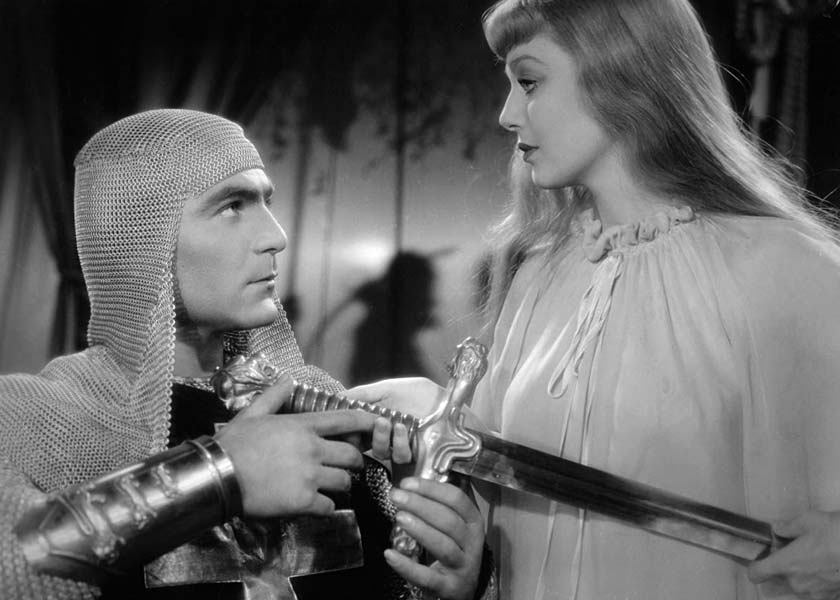Synopsis
After the conquest of Jerusalem by the Saracens, a Holy Hermit (Smith) preaches for a third crusade. Several Christian monarchs, including King Philip of France (C. Henry Gordon), the Duke of Burgundy (William Farnum), and the Duke of the Germans (Hobart Bosworth), pledge to join the new crusade. In order to avoid marriage to Princess Alice, the sister of the French king, King Richard the Lionheart of England (Wilcoxon) also takes the crusader’s cross, although he has no particular religious feelings.
During Richard’s absence, his brother, Prince John (Ramsay Hill) and Conrad, the Marquis of Montferrat (Joseph Schildkraut), plot against Richard and conspire to seize control of England and Palestine. By the time Richard’s army reaches the Kingdom of Navarre, his men have run out of provisions. The King of Navarre (George Barbier) offers the food on condition that Richard will marry his daughter, Princess Berengaria (Young). Richard has never met the Princess but agrees to the bargain. Too busy to attend the wedding ceremony, Richard sends his sword as proxy bridegroom. When Richard finally meets his bride, he discovers that she is a desirable young woman and takes her with him to Palestine. Although Berengaria is affronted and angry initially, she and Richard soon fall in love.
During the Battle of Acre, King Philip threatens to leave the Crusade unless Richard puts Berengaria aside and marries Princess Alice (DeMille). Richard refuses, and the disagreement threatens to dissolve the Crusade. In order to preserve the Crusade, Berengaria resolves to die and exposes herself to enemy archers. She is severely wounded. Sultan Saladin (Keith) finds her unconscious and bleeding and takes her to his camp where she is nursed back to health. Saladin intends to take her into his harem. Berengaria pledges herself to Saladin if he will save Richard from his enemy the Marquis of Montferrat. Meanwhile, the Christian army has conquered Acre and marched on Jerusalem, but the army is too depleted to take the city. Saladin respects the bravery of the Christians, and he and Richard arrange a peace accord that opens Jerusalem to all Christians, except Richard. Saladin returns Berengaria to the chastened Richard. With other devout pilgrims, she enters the city to pray.
Discussion
The Crusades is pure DeMille: superficial and ridiculous, but entertaining nonetheless. Despite the lavish medieval trappings that recreate the look of 12th century crusaders and Saracens, the film itself is a rather conventional romantic drama. King Richard, lusty and irreligious, is converted to piety and humility by the love, loyalty, and sacrifice of Princess Berengaria. Saladin also loves the beautiful and self-sacrificing Berengaria, but proves his nobility by giving her up. All ends happily. The basics of the history of Richard the Lionheart and the Third Crusade are more or less followed, with the romantic story attached and predominating.
Loretta Young, then age 22, is radiant in her makeup and costumes and projects warmth and sincerity. Henry Wilcoxon, a rather wooden actor who lacked a strong screen personality, brings force and physicality to his role as the warrior king. After starring in DeMille's The Crusades and Cleopatra (1934), Wilcoxon had character parts in four more DeMille films between 1947 and 1956, and was an associate producer for three more from 1952 to 1956. In 1963, Wilcoxon co-produced a TV documentary about DeMille. Ian Keith, who appeared in five DeMille epics from 1932 to 1956, makes a commanding Saladin, Sultan of Islam.

